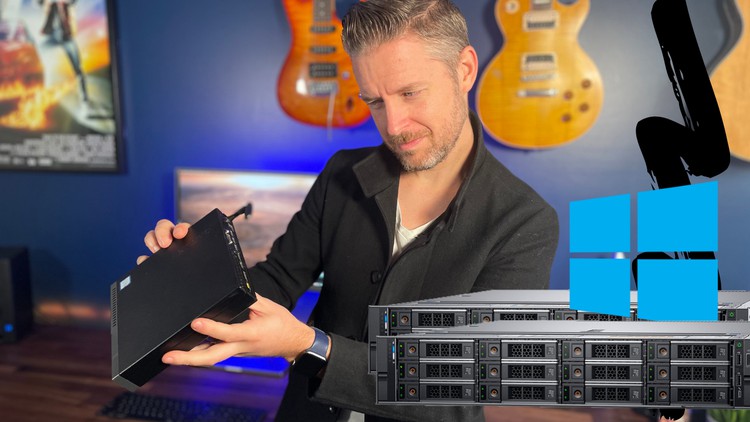
Learn about DNS and Build your own DNS Server!
☑ What DNS is, and the importance of DNS
☑ Different DNS record types (ie A name, CNAME, etc)
☑ How to build and configure DNS on a Windows Server
☑ Create DNS records
Understanding DNS is one of those essential skills that all IT System Administrators and Techs need to have!
DNS is cross platform, running across all OS environments.
This course focusses on demonstrating the functionality within a Windows Server environment and the steps to create your own DNS Server.
My name is Emilio and I am IT professional and leader, and for years have been helping people learn and better administer their IT Infrastructure and environments!
Overview
Once you have completed this class you’ll –
- Understand what DNS is, and the importance of DNS
- Understand the different DNS record types (ie A name, CNAME, etc)
- Learn how to configure DNS on a Windows Server
- Create your own DNS records
Why is understanding DNS important?
Understanding DNS is an essential skill that all IT Techs and Professionals need to have.
Without DNS computers on a network will have difficulty communicating with other computers on the network.
DNS is one of the core technologies aiding in the translation of a computer name (MyComputer022) to a relevant IP address (192.168.2.33), across a computer network.
The DNS manager, residing on a Windows Server, is a common tool used by administrators in thousands of businesses around the world.
What you’ll need to get started?
- You don’t need to be an expert! A basic understanding of IT terminologies and technologies will be great.
- To test this yourself, an environment that is setup and configured within a Windows Domain will help. This could even be your own home demo learning environment.
If you have any questions please feel free to reach out!
English
Language
Welcome
Introduction to this Course
DNS Basics
DNS Overview
DNS on a Windows Computer (end-user)
Setup DNS on Windows Server
Download & Install Windows Server 2019
Setup DNS role
Using DNS
Reviewing DNS Server
DNS Records + Troubleshooting
It’s now your turn
Summary and Next Steps